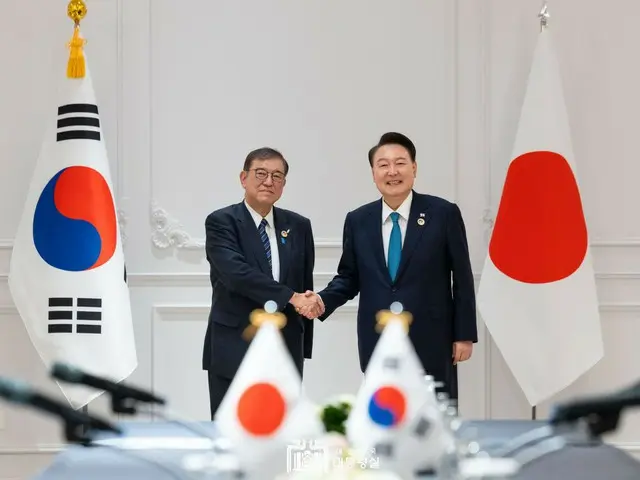Prime Minister Ishiba also met with Chinese Premier Li Qiang and others, marking his "diplomatic debut." The two leaders are expected to hold mutual visits next year, in the run-up to the 60th anniversary of the normalization of diplomatic relations between Japan and South Korea.
The two leaders agreed to actively pursue "shuttle diplomacy" and promote exchanges between the people of both countries. They also agreed to create concrete results that the people of both countries can feel.
South Korean media generally gave a positive response, saying, "This has given the green light to the continued improvement of bilateral relations." The meeting took place at a hotel in Laos for about 30 minutes. President Yoon said, "I met with President Moon in Japan last March, and we have been working together ever since."
"I believe this change was only possible because of the unwavering trust between the leaders of the two countries," he said. "Following his predecessor, Prime Minister Kishida, I would like to see Shah take the reins of the country."
President Yoon added, "Next year, 2025, marks the 60th anniversary of the normalization of diplomatic relations between Korea and Japan.
"I would like to work closely with Prime Minister Ishiba to present a hopeful vision for the future of the two countries and to ensure that the people of both countries can feel the improvement of relations first-hand," he said.
"Such cooperation is extremely important for the peace and stability of the region," he said, adding, "I would like to inherit and further develop the relationship between our two countries, which was greatly improved by President Yoon and former Prime Minister Kishida."
"In order to maintain good relations between the two countries, exchanges and mutual understanding between the people of the two countries are important," he said. "With the 60th anniversary of the normalization of diplomatic relations next year as an opportunity, the Japanese government hopes to help create such an environment."
The two leaders also confirmed that they would intensify concrete discussions on efforts to facilitate immigration procedures between the two countries.
The proposal is based on the idea of introducing a "pre-clearance" system in which tourists entering Japan would undergo immigration inspections in advance at their departure points.
Based on this, when former Prime Minister Fumio Kishida met with President Yoon last month, they agreed to consider this initiative. In the field of security, they agreed to further strengthen cooperation among the three countries, including the United States.
Confirmed. They shared "serious concerns" about North Korea's nuclear and missile development and the progress of military cooperation with Russia, and agreed to work closely together with Japan and South Korea, as well as the three countries of Japan, the United States and South Korea.
He did not mention his own idea of an Asian version of NATO (North Atlantic Treaty Organization).
As they entered the venue, they held hands and exchanged friendly greetings. When President Yoon extended his hand to Prime Minister Ishiba, who arrived just over a minute late, Prime Minister Ishiba shook President Yoon's hand with both hands and exchanged greetings.
" The first face-to-face meeting between the two leaders was held in a friendly atmosphere. Meanwhile, South Korean media outlet Newsis reported that "there was no exchange of opinions regarding sensitive issues between the two countries, such as historical issues.
"It appears that there was an atmosphere of caution in dealing with issues such as history and history textbooks, as Japan is approaching an election (House of Representatives election)," the report continued.
This was Prime Minister Ishiba's first overseas trip, but the evening paper Fuji reported that "he has erased his 'Ishiba color,' such as by shedding his idea of an 'Asian version of NATO,' and is following the lead of the former Kishida Fumio administration."
"The United States has been determined to continue on its path," he said. Other Asian countries are wary of an "Asian version of NATO," as they see it as "only exacerbating tensions in the region."
In an interview with the newspaper, the prime minister said, "The administration has just been inaugurated, and the prime minister's own foreign policy has not been solidified. Domestic public opinion has not yet been solidified even on his own idea of an Asian version of NATO, and it is too early to make a decision in the international community, so
He explained that he was following the example of "safe driving."
2024/10/15 14:14 KST
Copyrights(C)wowkorea.jp 5

